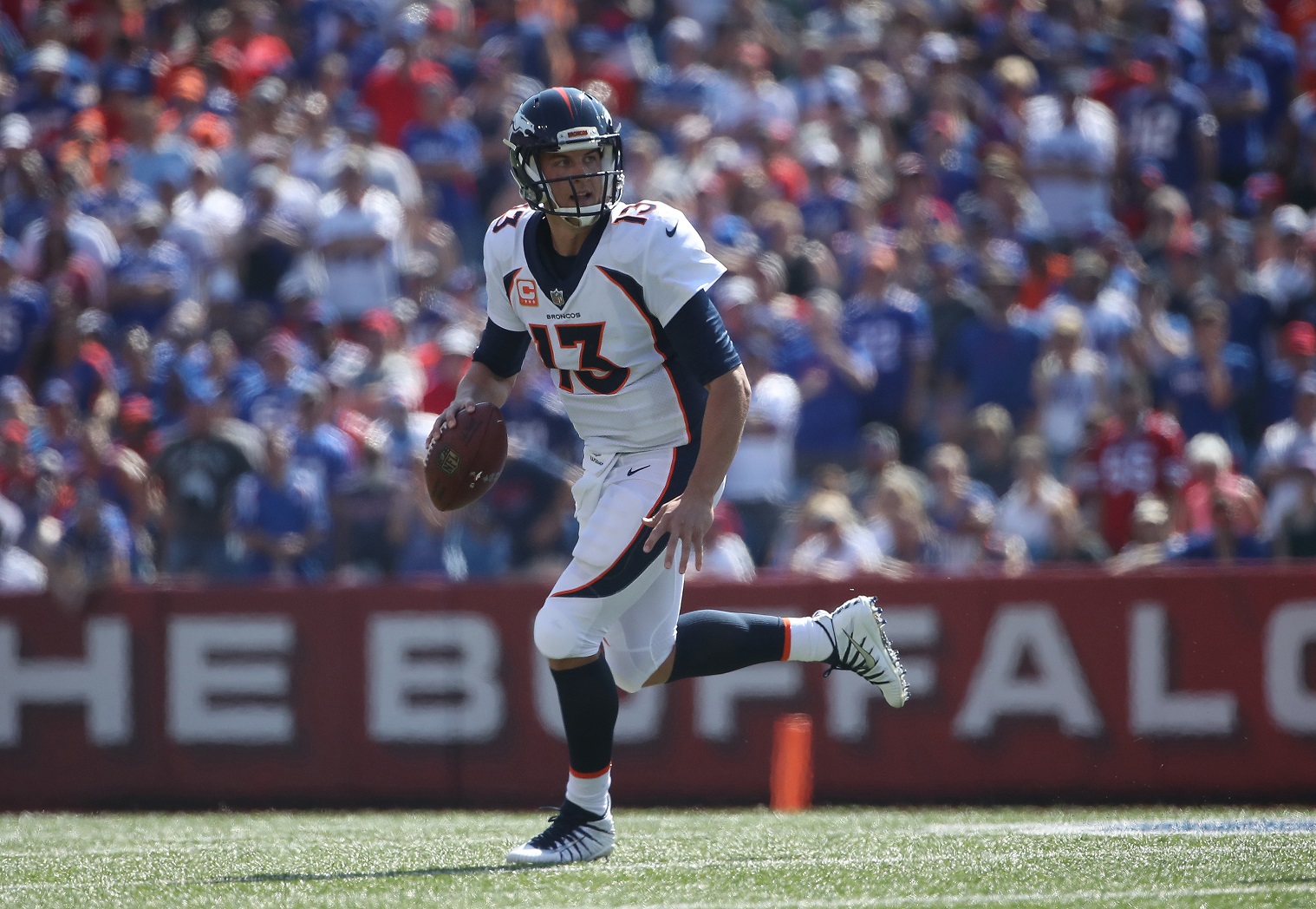Week 3 was a bad week for road favorites. Among others, the Broncos lost in Buffalo, the Seahawks lost in Tennessee, and the Raiders lost in Washington, D.C. But from another perspective, it was a bad week for west coast teams traveling east. I did not hear that narrative discussed this week, but I’ve heard it many times before. It makes sense as a theory. My research last week showed that differences in player rest have an observable impact on production, and whenever a player travels east for an early game, his normal cycle of rest is disrupted.
I wanted to investigate whether those time-zone differences mattered for fantasy, so I ran a series of weighted average comparisons similar to what I did to test differences in the number of off days. This time, I organized my research around the idea of a body clock, which I’ve demarcated relative to players’ home time zones. That means that a player on a west coast team like the 49ers who plays a 1 p.m. ET game has a body-clock time of 10 a.m. for that game, no matter where that game is actually played. Then, I compared player statistics in 10 a.m., 11 a.m., and 12 p.m. body-clock games to their statistics in body clock games in the 1 p.m. to 4:30 p.m. range. I restricted both sets of games to road games, which is a critical point I’ll return to.
First, here are player passing stats when they travel east.
| Expected Change in Pass Fantasy Points Compared to Normal Game Time | ||||
| Body Clock | Yards | TD | INT | Std Pts |
| 10 a.m. | +12.6 | +0.28 | -0.23 | +2.10 |
| 11 a.m. | -2.1 | 0.00 | -0.15 | +0.22 |
| 12 p.m. | -6.4 | -0.06 | +0.06 | -0.62 |
I can’t say I saw that coming. It turns out that, since 2009, quarterbacks have been more effective in 10 a.m. body-clock games than they have been in their regular time slots by a bit more than 2 fantasy points (which I’ve calculated by multiplying the difference in 10 a.m. fantasy points per pass attempt and normal-time fantasy points per pass attempt by 35, which is the average number of pass attempts in a game). That comparison is built on a small-ish sample of 1,746 pass attempts, so it could be skewed by the lack of data. But the weighted average approach makes it so that only the teams that have a sample on both sides contribute to the calculation and do so in proportion to their own sample sizes.
For running backs, the slope better matches my expectations.
| Expected Change in Run Fantasy Points Compared to Normal Game Time | |||
| Body Clock | Yards | TD | Std Pts |
| 10 a.m. | 5.3 | -0.11 | -0.14 |
| 11 a.m. | 0.9 | 0.00 | 0.07 |
| 12 p.m. | 2.3 | 0.02 | 0.35 |
For them, 10 a.m. games have led to small declines in fantasy points scored. However, running backs have been a bit better at 11 a.m. and 12 p.m. body-clock games than they have at normal time.
If you’re with me that this theory is debunked, then you might still wonder where the idea came from. My theory for that is that people have confused the impact of traveling east with the impact of playing on the road, in general. If you run a straight comparison of player and team statistics in their normal time zone and out of their time zone, then the former sample includes home games and the latter sample does not. But the home/road distinction is a really big deal. To illustrate, I ran a couple of simpler weighted average comparisons of team points per game. Compared to playing at home in general, teams score 2.4 fewer points per game on the road. But when you isolate both samples to road games, teams score about the same in their time zone and outside it (specifically, my test showed that they score 0.4 more points at 10 a.m. body clock than in normal body clock times).
The biggest west-to-east travel game in Week 4 is the Rams at Dallas, and I wouldn’t be scared away from my Rams in fantasy. Yes, it is a road game, but some previous research of mine showed that playing in a dome counteracts the losses an outdoor team experiences on the road. If they are both healthy enough to play, then Todd Gurley and Sammy Watkins are clear starts, and I’m continuing to roll with Jared Goff in one of my deeper leagues.



 © 2026 PFF - all rights reserved.
© 2026 PFF - all rights reserved.